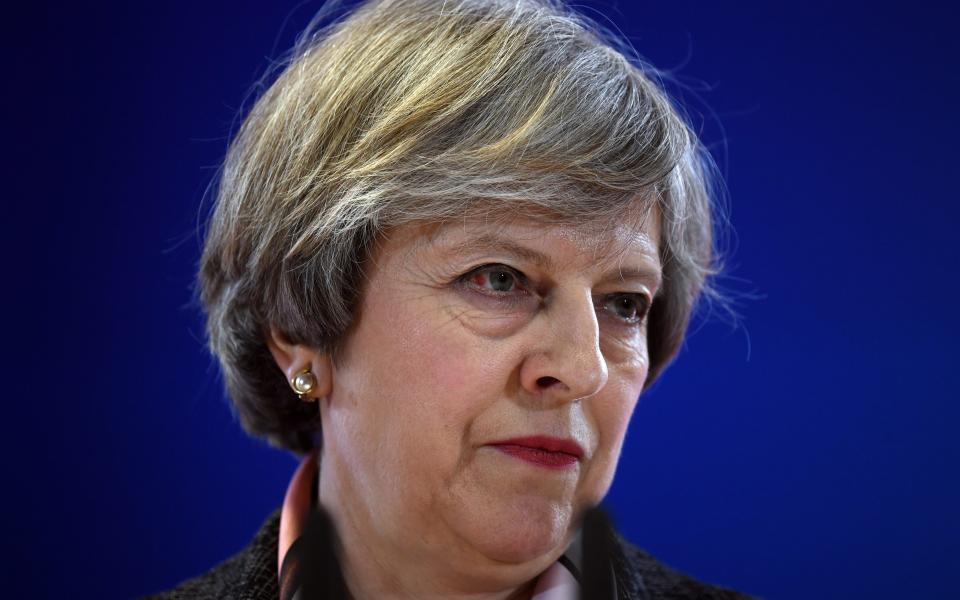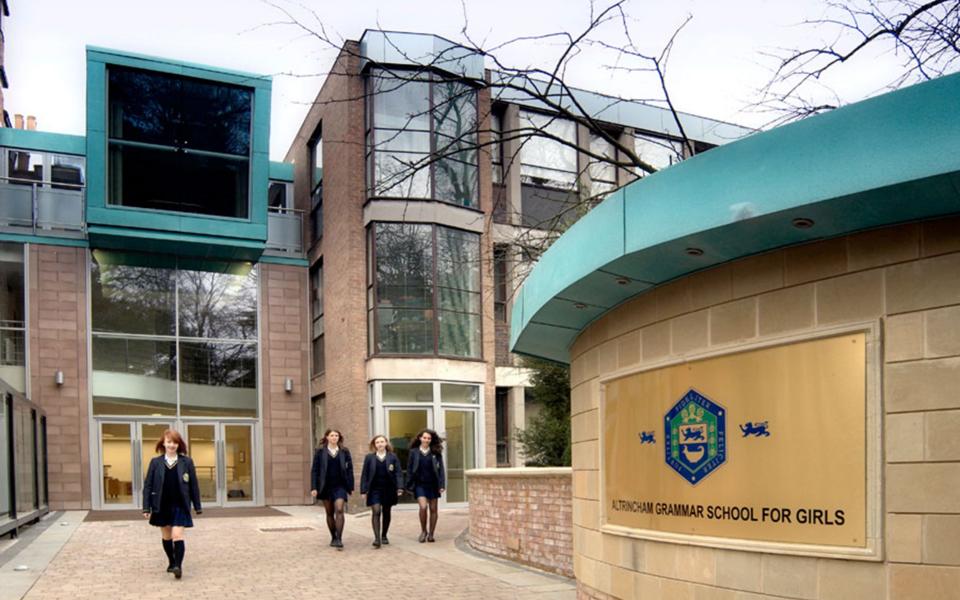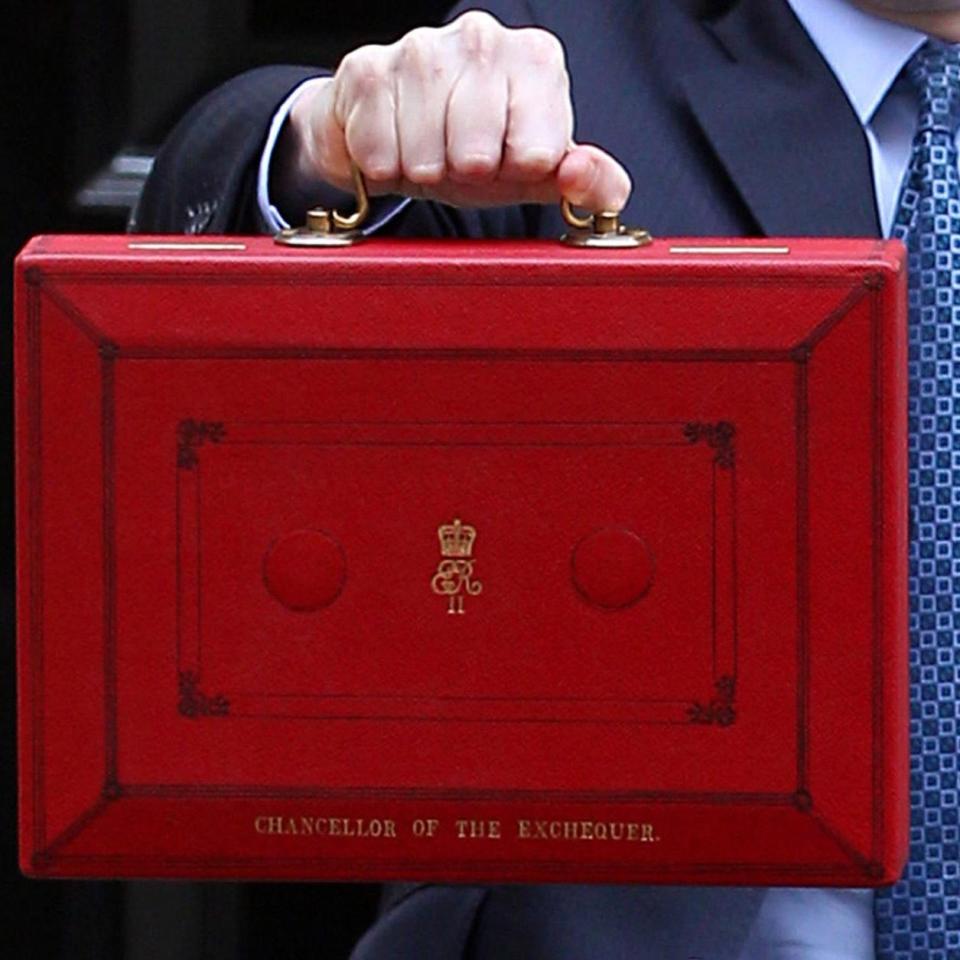Tory backlash over plans to lower 11-plus standards for poor students
Leaked Government proposals that would see grammar schools being forced to offer lower 11-plus pass marks to poorer children has provoked a backlash among Conservative MPs.
Tory backbenchers have told The Sunday Telegraph that such a policy would be a "mistake" and threatens to undermine the ethos of selective education.
They warned that it would store up problems for the future as less bright children may not be able to keep up with their peers, and added that it risks patronising disadvantaged communities by sending out a message that less is expected of them.
Earlier this week it emerged that under new plans, grammars could be compelled to increase their intake of deprived children, as part of a new offensive to counter criticism that grammars favour the well-off.
Ministers have previously indicated Prime Minister Theresa May's new generation of grammar schools must be able to demonstrate how they will improve social mobility.
Now it is suggested that similar conditions could also be imposed on the existing 163 grammar schools in England, after a government source said that there was a “compelling” case for extending the proposed rules to all grammars.
Graham Brady MP, the chair of the powerful 1922 committee, said it would be a "mistake" to force schools into adopting the policy .
“Grammars are already keen to widen the social diversity of applicants and of the pupils attending them,” he said.
“There are numerous ways of doing this and it would be a mistake to force grammar schools to adopt a particular approach by requiring a quota to be reserved for a particular demographics or requiring lower pass marks for entry exams.”
Mr Brady, who is MP for Altrincham and Sale West, added that grammars would achieve far more by increasing awareness among disadvantaged communities about the benefits of grammar schools, and encouraging more children to sit the test in the first place.
He went on: “There is a danger if you set a significantly lower pass mark for children from less affluent backgrounds that by doing so you might enshrine lower expectations for those children and for schools serving those communities.
We should be cautious about setting a blanket requirement and applying it it all grammars" Gareth Johnson MP, a backbencher who has campaigned to bring back grammars, agreed that that selective schools should try to create a level playing field so that children from all backgrounds can attend them, but "we shouldn't try to change the essence of what they are".
He told The Telegraph: “My concern about having children attending from whatever background who a haven't the academic abilities is that they will struggle when they attend. Are grammars then expected to stream within them? I think it would story up problems for the future.
“The whole point of grammars is to have specialisation in academic work and therefore you need children who are capable. If you change that there is a danger of setting up some children to fail and to struggle when they get there.”
He said that rather than trying to put “square pegs into round holes”, entrance exams for grammars should be less predictable, so that children from affluent families do not gain advantage by paying for expensive tutors.
Mr Johnson said that lowering entry requirements for poor children also “runs the risk of being a bit patronising”.
He said: “I welcome any effort to attract more children to grammars - but I just don't think this is the way to do it.”
Chris Philp MP said that grammars should be encouraged to make more effort to attract disadvantaged children but added: "I certainly would not want that pushed to an extent that it undermines their academic standards."
Research shows that only 3 per cent of grammar school pupils are entitled to free school meals, compared with 18 per cent in the areas they serve, while more than 10 per cent have attended a fee-paying prep school.
Jim Skinner, chief executive of the Grammar School Head Association, said that the majority his members are already taking a raft of measures to increase their intake of disadvantaged children, such as giving them priority when places are over subscribed.
He added that "a few dozen" grammars have a lower pass mark for poorer children as part of their drive to boost their intake of disadvantaged "I think the philosophy behind this is that it is the same principle of universities making lower offers to some youngsters.
You are trying to make up for the gap in their attainment due to their disadvantage," he said.
A Department for Education spokesman said they would not comment on any "speculation" about specific Government plans ahead of the publication of the White Paper on grammar schools, which is expected in the coming weeks.
The spokesman said: “Our proposals are about creating more choice, with more good school places for more parents in more parts of the country.
"We want to do this by lifting the ban on new grammars and harnessing the resources and expertise of universities, faith schools and independent schools. "We have been carefully considering responses to the consultation and will respond in due course.”

 Yahoo News
Yahoo News 



